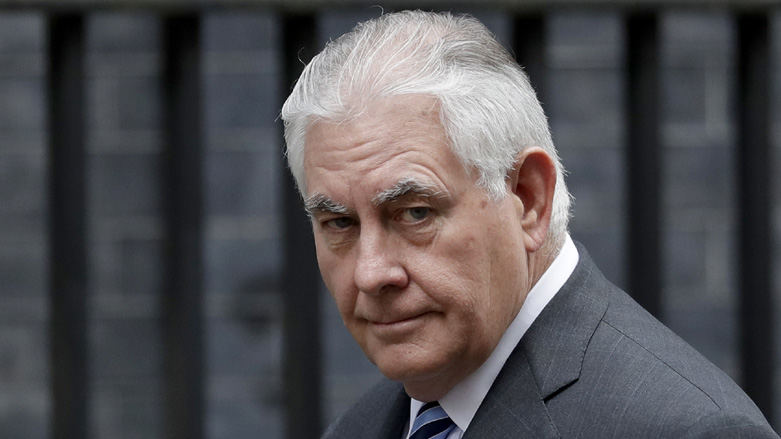US open to sanctions on Turkey

WASHINGTON DC, United States (Kurdistan 24) – The US is open to imposing sanctions on Turkey, State Department Spokesperson Heather Nauert stated on Thursday, as Secretary of State Rex Tillerson visited Ankara for difficult talks at a time of unusually strained relations.
“Sanctions are always on the table with regard to different nations and areas that we may have difficulties with,” Nauert said, as she responded to a question from Kurdistan 24.
On Thursday evening, Tillerson met with Turkish President Recep Tayyip Erdogan and Foreign Minister Mevlut Cavusoglu for nearly three and a half hours. Unusually, Tillerson had no policy aide with him, nor even a translator. Rather, Cavusoglu was the translator, CNN reported.
John Kirby, who served as State Department Spokesperson during the Obama administration and is now a CNN analyst, remarked that it was very “foolhardy” for Tillerson not to have had an official US translator to ensure the accuracy of his remarks.
However, a State Department official explained to CNN that Tillerson had "met before” with Erdogan, and “he's okay with the foreign minister doing the translation. They have a good, strong working relationship. "
Nauert acknowledged that there were “certainly” issues in dispute with Ankara, but she said there had been “a productive series of meetings” with Turkish officials.
They include a meeting on Sunday that National Security Adviser H.R. McMaster held with Erdogan’s spokesman, Ibrahim Kalin, as well as two meetings that Secretary of Defense Jim Mattis subsequently had with his Turkish counterpart at a meeting of the coalition against the Islamic State (IS) in Rome and at a NATO conference in Brussels.
And, finally, there is Tillerson’s meeting. Little information has emerged about it, beyond a Turkish report that Erdogan “explicitly” articulated “Turkey's priorities and expectations.”
Tillerson is to meet again with his Turkish counterpart later on Friday, after which a press conference is scheduled.
Dr. Aykan Erdemir, a former Turkish parliamentarian and now a senior fellow at the Foundation for Defense of Democracies (FDD), believes the US needs to develop more leverage to deal effectively with Ankara.
In a piece in The Hill, a paper focusing on Washington politics, Erdemir contrasted Moscow’s relatively good relations with Ankara, with the current crisis besetting US ties.
Russian President Vladimir Putin “knows how to handle” fellow authoritarian leaders, Erdemir wrote: “he relentlessly applies leverage to extract concessions.”
Erdemir cited the numerous ways that Russia has supported the People’s Protection Units (YPG), US support of which is Turkey’s major complaint against Washington.
Russia allowed the YPG to establish an office in Moscow in 2015. Last year, it struck a deal with the organization to establish a small military base in Afrin, and now the YPG has repeatedly used Russian-made anti-tank missiles against Turkish forces.
That has caused no evident problem in Turkey’s relations with Russia in contrast to the fierce rhetoric that Ankara has directed against Washington, and the anti-American sentiment that Erdogan has drummed up.
Erdemir suggested that one important reason for the difference is that Erdogan “assumes that the US will not push back,” although it has various tools to do so, including sanctions.
In short, there is no penalty for Erdogan’s aggressive posture toward the US.
Something similar might be said of US policy toward Iraq. The US repeatedly tells Prime Minister Haider al-Abadi that he should open Kurdish airports to international traffic and pay the salaries of government employees.
However, little happens—because there is virtually no penalty. As one well-informed observer put it, the US policy has “no teeth.”
Kurdistan 24 also asked Nauert, if, in the current dispute, Ankara had threatened to deny US access to Incirlik or other military bases.
“I’m not aware of any disruptions or any threats regarding disruptions,” she replied.
Editing by Nadia Riva
